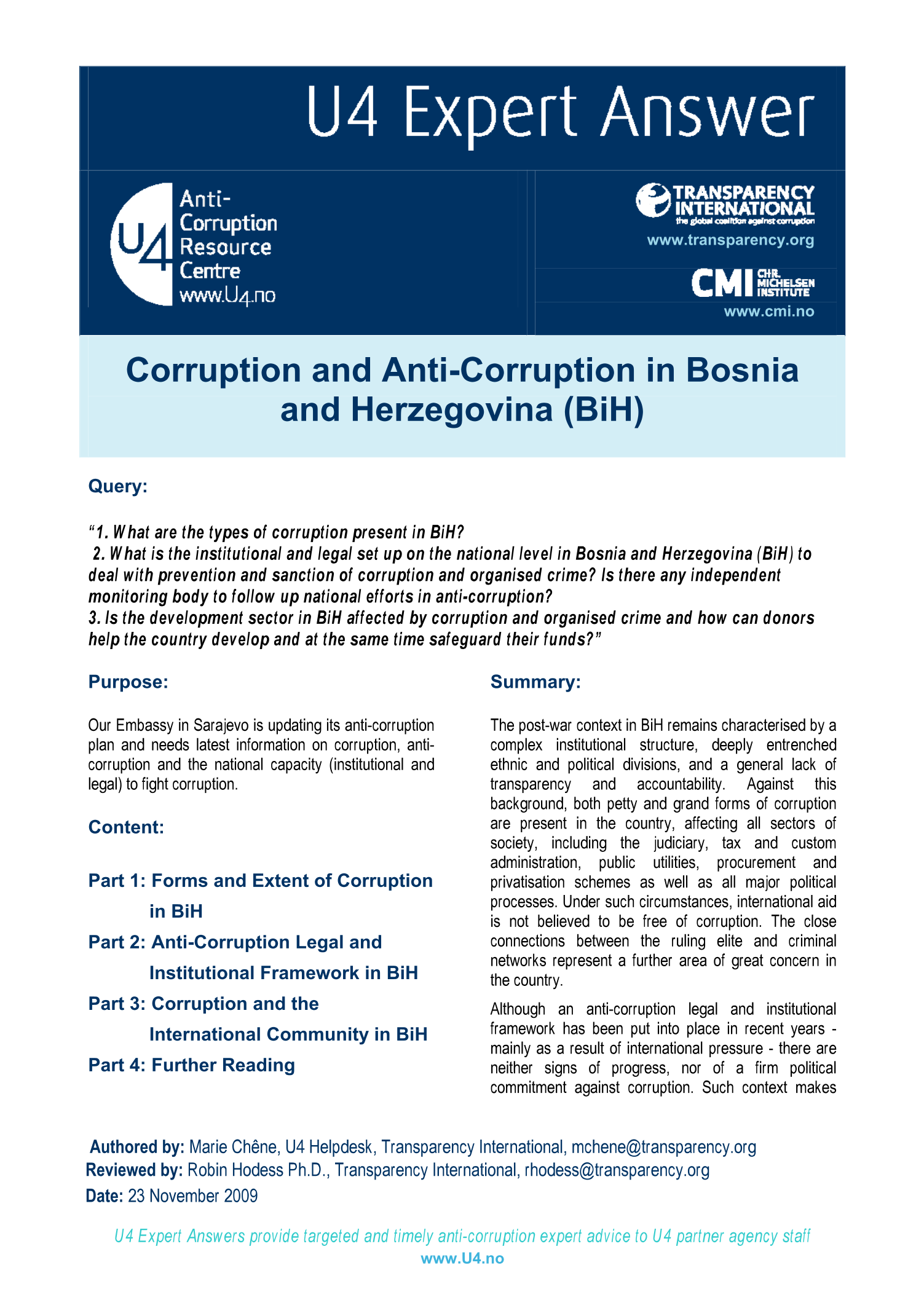U4 Helpdesk Answer
Corruption and Anti-Corruption in Bosnia and Herzegovina (BiH)
The post-war context in BiH remains characterised by a complex institutional structure, deeply entrenched ethnic and political divisions, and a general lack of transparency and accountability. Against this background, both petty and grand forms of corruption are present in the country, affecting all sectors of society, including the judiciary, tax and custom administration, public utilities, procurement and privatisation schemes as well as all major political processes. Under such circumstances, international aid is not believed to be free of corruption. The close connections between the ruling elite and criminal networks represent a further area of great concern in the country. Although an anti-corruption legal and institutional framework has been put into place in recent years - mainly as a result of international pressure - there are neither signs of progress, nor of a firm political commitment against corruption. Such context makes the definition of an anti-corruption agenda for t

Cite this publication
Chêne, M. (2009) Corruption and Anti-Corruption in Bosnia and Herzegovina (BiH) . Bergen: U4 Anti-Corruption Resource Centre, Chr. Michelsen Institute (U4 Helpdesk Answer Helpdesk)
Disclaimer
All views in this text are the author(s)’, and may differ from the U4 partner agencies’ policies.
This work is licenced under a Creative Commons Attribution-NonCommercial-NoDerivatives 4.0 International licence (CC BY-NC-ND 4.0)
Keywords
Bosnia and Herzegovina, Western Balkans, Europe, Southern Europe, legal instruments, anti-corruption agencies, anti-corruption interventions, anti-corruption tools, anti-corruption institutions, international institutions, international coordination, donor coordination, donors, public sector, private sector, post-conflict

